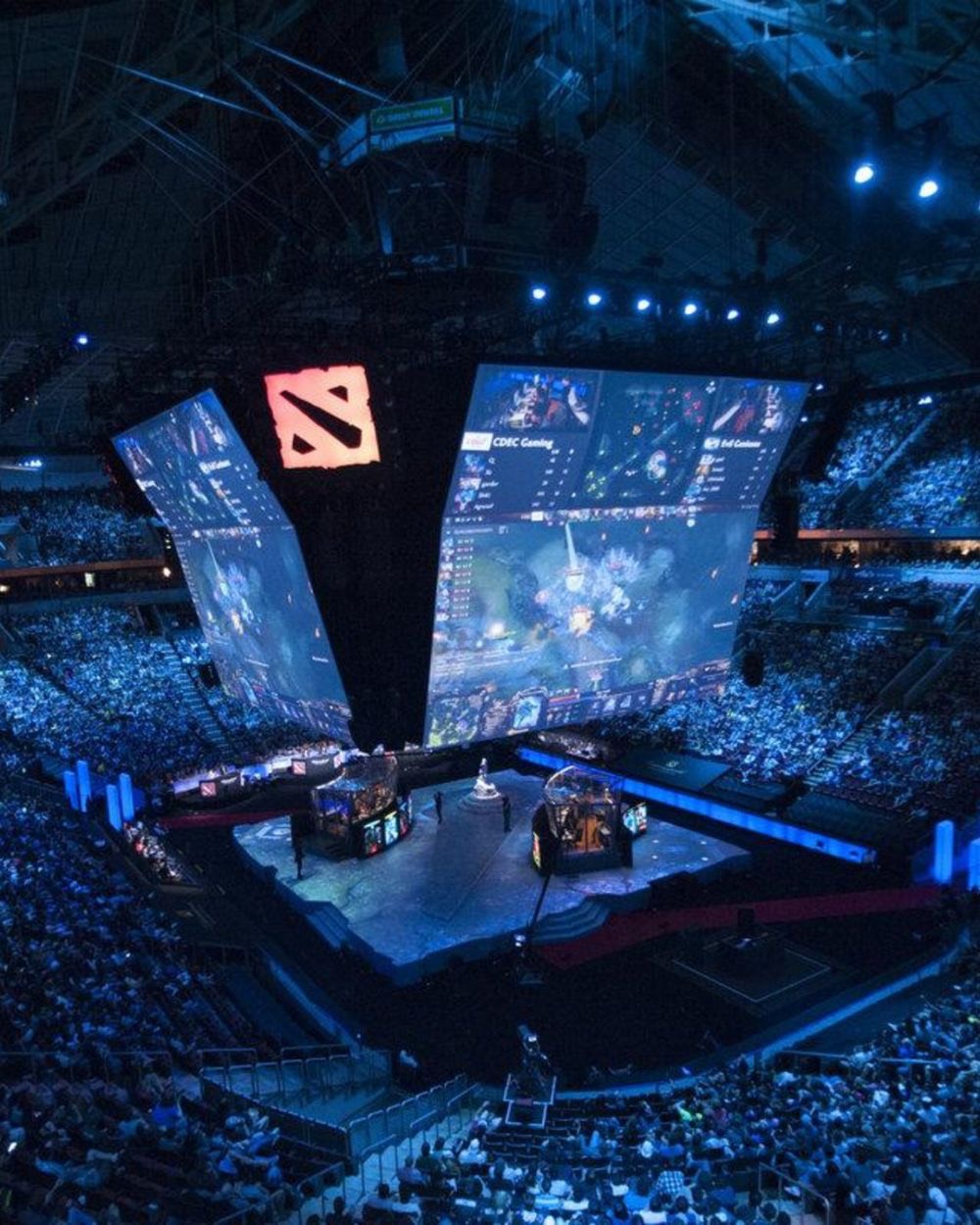What is eSports?
In ranking eSports in the field of sports, views are quite divided. Some people believe that eSports cannot be considered a true form of sport, while others believe that eSports qualifies as a type of sport.
In the view of those who support eSports as a form of sport, they argue that eSports shares many common elements with traditional sports. These factors include competition, skill, concentration, training and fitness. eSports require professional athletes to have the same basic training, physical fitness, and psychology as traditional sports athletes.
However, some people still disagree with eSports being considered a form of sport. They argue that video game activity does not have enough physical and technical elements to be considered a real sport. Furthermore, some people believe that the term "sports" should only be applied to motor activities and should not be extended to non-motor activities such as eSports.
Whether eSports is considered a form of sport or not is still a matter of debate and there is no universally accepted opinion.

Does the eSports industry affect the economies of countries?
Yes, the eSports industry has a significant impact on the economies of countries. Here are some ways the eSports industry contributes to the economy:
1. Create jobs and income: The eSports industry creates many job opportunities in fields such as professional athletes, coaches, team managers, etc. This helps increase income for individuals and contribute to the economic development of the country.
2. Increase revenue and investment: The eSports industry attracts the attention of sponsors, investors and large companies. Companies can invest in sponsoring teams, organizing tournaments, advertising, and distributing content. This brings revenue to the eSports industry and creates new business opportunities.
3. Technology and infrastructure: The eSports industry requires good technology infrastructure to support online matches, live broadcasts and content transmission. This promotes investment in network technology, broadcasting and server systems. Technology and telecommunications companies also have opportunities to collaborate and develop new products and services.
Challenges of eSports
Although eSports has become a major industry, official recognition and acceptance by society and traditional sports organizations remains a challenge. Some people still do not consider eSports a true form of sport and do not recognize the value and talent of eSports players.
Competition in the eSports industry is increasing, with the development of many teams and tournaments. This poses challenges to the sustainability and survival of teams and tournaments. Smart investment and management are needed to ensure the industry's long-term growth and success.
The eSports industry also faces issues of diversity and equality, including ensuring the representation of players and fans from different ethnic groups, genders and regions. Investment and implementation of policies and programs are needed to encourage diversity and create a fair and equitable environment within the industry.
Overall, the eSports industry is facing challenges related to recognition and acceptance, health and fitness, ethics and governance, competition and sustainability, and diversity and equality. However, with interest and growth potential, the eSports industry also has the opportunity to overcome these challenges and continue to grow in the future.
In the view of those who support eSports as a form of sport, they argue that eSports shares many common elements with traditional sports. These factors include competition, skill, concentration, training and fitness. eSports require professional athletes to have the same basic training, physical fitness, and psychology as traditional sports athletes.
However, some people still disagree with eSports being considered a form of sport. They argue that video game activity does not have enough physical and technical elements to be considered a real sport. Furthermore, some people believe that the term "sports" should only be applied to motor activities and should not be extended to non-motor activities such as eSports.
Whether eSports is considered a form of sport or not is still a matter of debate and there is no universally accepted opinion.
Does the eSports industry affect the economies of countries?
Yes, the eSports industry has a significant impact on the economies of countries. Here are some ways the eSports industry contributes to the economy:
1. Create jobs and income: The eSports industry creates many job opportunities in fields such as professional athletes, coaches, team managers, etc. This helps increase income for individuals and contribute to the economic development of the country.
2. Increase revenue and investment: The eSports industry attracts the attention of sponsors, investors and large companies. Companies can invest in sponsoring teams, organizing tournaments, advertising, and distributing content. This brings revenue to the eSports industry and creates new business opportunities.
3. Technology and infrastructure: The eSports industry requires good technology infrastructure to support online matches, live broadcasts and content transmission. This promotes investment in network technology, broadcasting and server systems. Technology and telecommunications companies also have opportunities to collaborate and develop new products and services.
Challenges of eSports
Although eSports has become a major industry, official recognition and acceptance by society and traditional sports organizations remains a challenge. Some people still do not consider eSports a true form of sport and do not recognize the value and talent of eSports players.
Competition in the eSports industry is increasing, with the development of many teams and tournaments. This poses challenges to the sustainability and survival of teams and tournaments. Smart investment and management are needed to ensure the industry's long-term growth and success.
The eSports industry also faces issues of diversity and equality, including ensuring the representation of players and fans from different ethnic groups, genders and regions. Investment and implementation of policies and programs are needed to encourage diversity and create a fair and equitable environment within the industry.
Overall, the eSports industry is facing challenges related to recognition and acceptance, health and fitness, ethics and governance, competition and sustainability, and diversity and equality. However, with interest and growth potential, the eSports industry also has the opportunity to overcome these challenges and continue to grow in the future.


